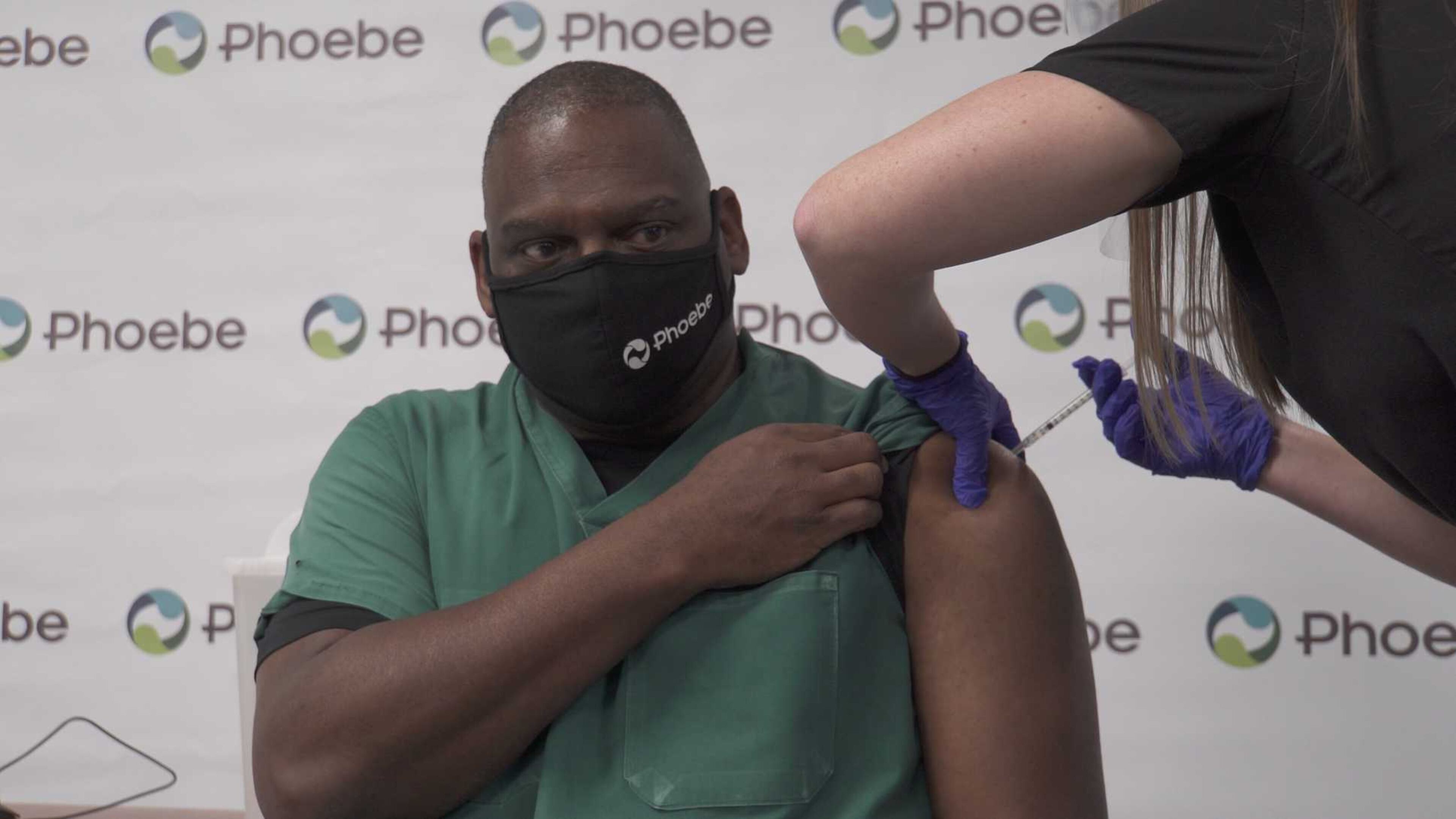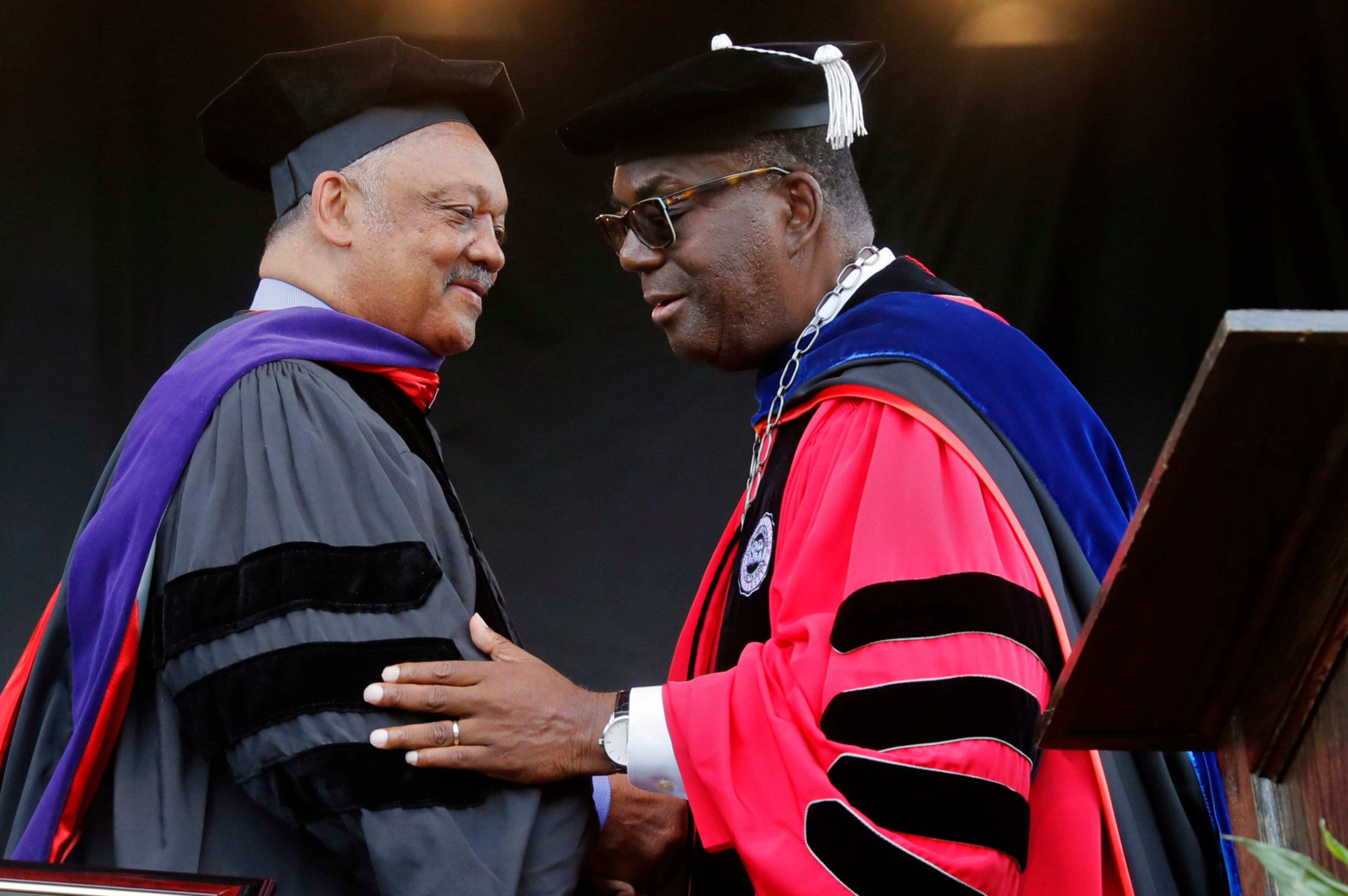Black health care workers step forward to be face of vaccination effort

Dr. James Black, the medical director of emergency services at Phoebe Putney Memorial Hospital in Albany, was born in that hospital 53 years ago, so caring for the friends, family and others impacted by the coronavirus pandemic is personal for him.
At one point, he worked more than 100 consecutive days as the pandemic ravaged the area.
On Thursday, Black took another step to help the community. He was the first person at the hospital to receive the COVID-19 vaccine, which he hopes will encourage other African Americans who may be hesitant about the vaccine to get the shots when they’re eligible.
“I understand some of the concerns and challenges,” he said in a telephone interview Friday. The United States, he noted, has had a long history of inequities in medicine and “some things that were downright wrong.
“There’s a lot of reason for concern and trepidation, and I’m happy to address and answer questions.”

In Georgia, and across the nation, Black health care leaders and workers have become the public face of vaccination efforts — in many cases, purposefully so — to encourage the many African Americans wary of the vaccine to trust the science.
Sandra Lindsay, a Black nurse at Long Island Jewish Medical Center in New York City, was reportedly the first American last week to receive the vaccine. Lindsay, 52, said in a New York Times interview she volunteered, in part, to “inspire people who look like me, who are skeptical in general about taking vaccines.”
On Wednesday, Marty Carpenter, HIV program manager for the Gwinnett, Rockdale and Newton County Health Department, was the first in that office, and possibly, the first in metro Atlanta to get a vaccine shot.
“I’m hoping (African Americans) feel more comfortable and hopefully feel it is safe and they can trust the public health community that (the vaccine) is safe and they can get vaccinated,” Carpenter, 32, who is Black, later told the AJC.
On Friday, two prominent Atlanta public health leaders who are Black — former U.S. Surgeon General Dr. David Satcher and Morehouse School of Medicine President Dr. Valerie Montgomery Rice — both got the vaccine.

Although African Americans have been disproportionately impacted by COVID-19, polls shows African Americans are among the groups with the greatest vaccine hesitancy. A Kaiser Family Foundation survey found only 20% of African Americans would get vaccinated as soon as possible, a rate lower than whites and Hispanics. Twenty-five percent said they would not get vaccinated or do so only if required. More than 50% had a wait-and-see approach.
The hesitancy is rooted in a horrible history of medical mistreatment of African Americans.
The most cited example is the Tuskegee Experiment. In the early 1930s, doctors deliberately did not treat about 400 Black men with syphilis so the physicians could study the disease. Many men who participated in the research, at what was the Tuskegee Institute, died and infected their loved ones. The Alabama-based study lasted 40 years until journalists with the Associated Press exposed it in 1972.
Dr. Lynn Paxton, head of the state-run Fulton County Board of Health, said Tuskegee hampers the ability for her and other public health experts to gain the trust of Black communities and other marginalized groups
“Tuskegee is something that haunts public health,” Paxton told county commissioners Wednesday.
That’s a massive problem in a county where half of residents identify as Black or African American. About one-third of Georgia residents are African American.
In Albany, Dr. Black also talked about Tuskegee. Some friends and colleagues worried about getting vaccinated have asked him questions. Black said he appreciates the questions and encourages others to seek credible information about the vaccine.
“I want people to know that I consider the vaccine to be safe,” he said.
Staff writer Ben Brasch contributed to this report.



